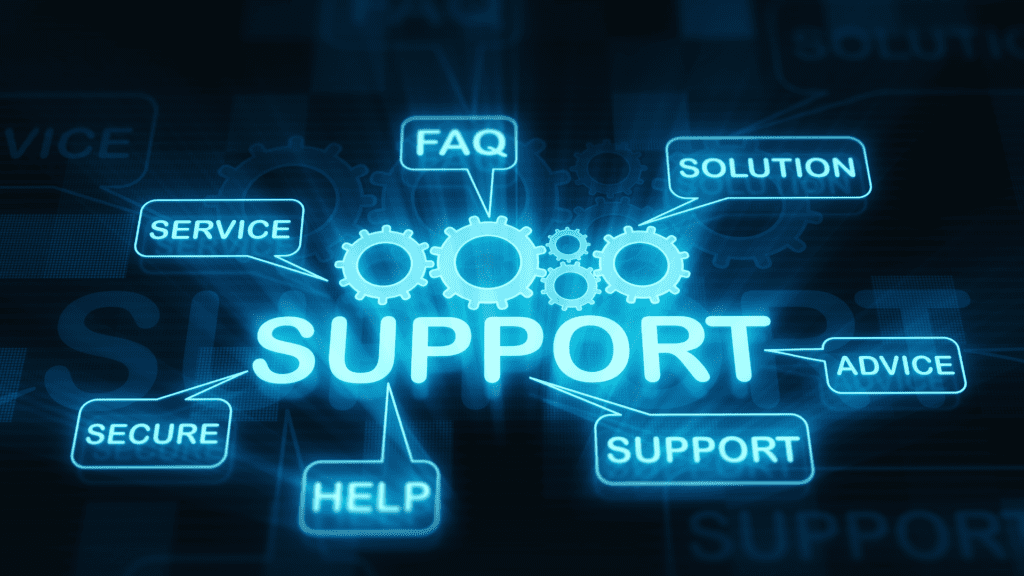In this quickly changing technological space, selecting the best IT service provider is a critical decision for businesses of every sizes. With technology continuing to advance swiftly, having a trustworthy partner to assist your IT requirements can make a considerable difference in your overall efficiency and safety. From cybersecurity to cloud computing, the appropriate provider can assist you manage the challenges of modern technology and prepare your organization for victory.
Since organizations increasingly depend on technology to operate efficiently, understanding what IT services involve becomes vital. This comprehensive guide analyzes the multiple facets of IT support, such as the importance of IT support for small companies, the differences between in-house and managed IT services, and upcoming trends to watch in the coming future. Whether you are looking to enhance your cybersecurity measures or improve your IT infrastructure, knowing how to choose the correct IT support provider can pave the way for more efficient operations and better results.

Grasping IT Services
IT services encompass a diverse variety of technological offerings provided to businesses to help them operate efficiently and effectively. These services consist of a spectrum from technical support and network management to software installation and IT consultancy. As businesses increasingly depend on technology for their operations, knowing what IT services are and how they can benefit an organization is essential for making informed decisions.
The importance of IT services cannot be overemphasized, especially for small businesses that may not have the resources to maintain a full-scale in-house IT department. IT service providers provide specialization that allows these businesses to focus on their essential activities while guaranteeing their technology infrastructure runs smoothly. By utilizing external IT support, small businesses can access the latest technology without the significant upfront costs related to acquiring and upkeeping hardware and software.
Furthermore, IT services perform a vital role in boosting business efficiency and productivity. With the adequate IT support, organizations can minimize downtime, streamline processes, and improve overall performance. This leads to a more agile business environment, where companies can adapt rapidly to changing requirements and market conditions, ensuring they stay competitive in an ever-evolving landscape.
The Importance of Cybersecurity
In today's digital landscape, the importance of cybersecurity cannot be ignored. Every business, regardless of magnitude, is a possible target for hackers seeking to take advantage of vulnerabilities in their networks. https://astt.net.au/techcare-it-support-wollongong/ is crucial to protect confidential data, maintain customer trust, and ensure regulatory adherence. With increasing reliance on technology for routine operations, businesses face amplified risks from data breaches, ransomware attacks, and other cyber threats that can lead to considerable financial losses and reputational damage.
Investing in cybersecurity not only safeguards a business's data but also improves its overall performance. Robust cybersecurity measures can mitigate disruptions caused by breaches, allowing employees to focus on their core tasks instead of dealing with the aftermath from an attack. Additionally, a forward-thinking approach to cybersecurity can help spot and manage risks before they escalate into serious problems. This forward-thinking strategy not only defends assets but also leads to a more streamlined and effective operational environment.
Additionally, as businesses progressively adopt remote work models and cloud-based solutions, the need for robust cybersecurity measures becomes even more critical. Remote employees typically access company data over possibly insecure networks, amplifying vulnerability to cyber threats. Establishing strong security protocols for remote access, ongoing training on cybersecurity best practices, and allocation of resources in managed IT services can significantly enhance a business's security against cyber threats, ensuring that both the company's and customers' data remain secured.
Choosing Between In-House and Outsourced IT
When choosing between internal IT solutions and managed IT solutions, it is crucial to assess your company's specific needs and capabilities. Internal teams provide the advantage of having dedicated staff who are well-versed with your company's systems and environment, allowing for a more personalized method to IT management. However, this approach may require substantial investment in hiring, training, and ongoing compensation, which can strain your budget, particularly for smaller businesses.
On the flip side, outsourced IT solutions offer a more scalable and cost-effective solution. By contracting to a third-party service provider, companies gain access to a wide range of knowledge and advanced technologies without the requirement for significant upfront investments. Outsourced service providers can address a number of IT issues, from network monitoring to cybersecurity, allowing your organization to benefit from around-the-clock support and specialized expertise.
Ultimately, the choice between in-house and outsourced IT services should align with your company goals and expansion trajectory. If your organization is looking to reduce costs, enhance flexibility, and leverage advanced technologies, managed IT services may be the better option. On the contrary, if keeping full control over IT operations and fostering strong internal connections is a priority, building an internal team could be the right path ahead.
